
Study says Apple's iPhone 6 and 6 Plus are cannibalizing iPad use
Despite what many people say, size does matter; well... at least when it comes to screen-size and productivity. Sure, a large screen limits portability, but it also makes it easier to do work and multi-task.
Tablets became wildly popular, in part, because they had larger screens than smartphones. With that said, the Phablet craze has created smartphones with such large screens, that it can limit the allure of tablets like the iPad. Some analysts and pundits predicted that the iPhone 6 and 6 Plus would cannibalize iPad sales and use. Well, a new study by the company behind the popular Pocket app, shows that the latter may be true.
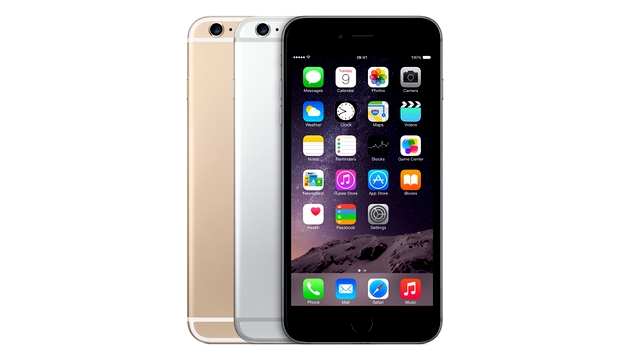
Steve Wozniak believes Apple should have brought out a phablet iPhone three years ago
It was a mistake to leave the iPhone phablet so late in the day, according to Apple co-founder Steve Wozniak, who believes that Cupertino should have got a large-screened smartphone out there way before the company actually managed the feat.
Wozniak was taking to CNN Money, and he said that the iPhone 6 Plus had arrived no less than three years late.
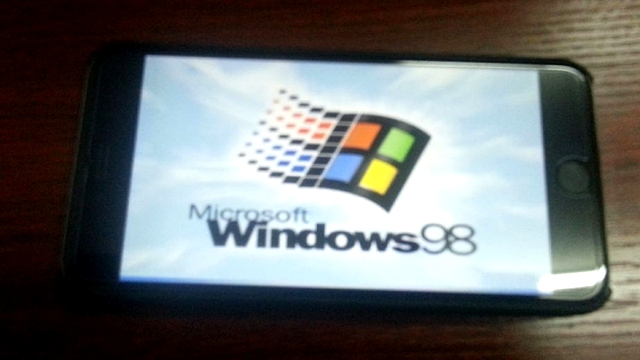
Forget iOS 8, a hacker gets Windows 98 running on iPhone 6 Plus
An enterprising Chinese hacker has decided to ditch iOS 8 from his new iPhone 6 Plus, and instead run… Windows 98.
Yes, Microsoft’s venerable desktop OS runs quite readily on Apple’s new phablet by all accounts, even if there isn’t much point to installing an old incarnation of Windows on a modern smartphone.
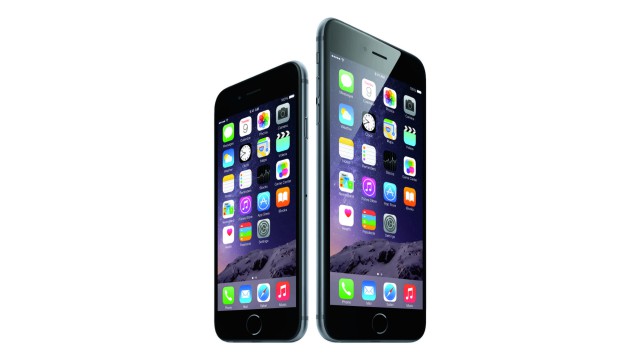
Europeans love iPhone 6, 6 Plus not so much
Europeans are a conservative bunch when it comes to the form factor of their beloved iPhones, as most of those who purchase one of Apple's new handsets opt for the smaller model. In fact, iPhone 6 is so popular among consumers on the old continent that it outsells the iPhone 6 Plus phablet by a whopping five to one.
The difference in sales is to be expected, given that phablets are still somewhat part of a niche today, and the majority of those who buy iPhone 6 and iPhone 6 Plus -- that would be existing iPhone users -- are more accustomed to less intimidating dimensions, like those of iPhone 6. However, Apple is right to jump on the phablet bandwagon, considering how big of a role such devices are expected to play in smartphone sales just a few years down the road, and the hit iPhone's market share is taking from Android handsets.

Stop the iScandal insanity!
Another day, another iPhone scandal. It seems like we can’t go through one news cycle without something to blame Apple for. While yes, the iPhone is nowhere near perfect, at times the level of negative press has bordered on ridiculousness.
My patience with these iScandals reached its breaking point this weekend. Here on BetaNews we covered the latest media-created iPhone flaw, which apparently is called "dyegate". The gist is this: a small minority of users complain that their iPhones are being stained by the dye from their jeans. That’s right: it is Apple’s fault that the consumer purchased a cheap pair of jeans that weren’t correctly pre-washed at the factory to prevent these dye bleeding issues.
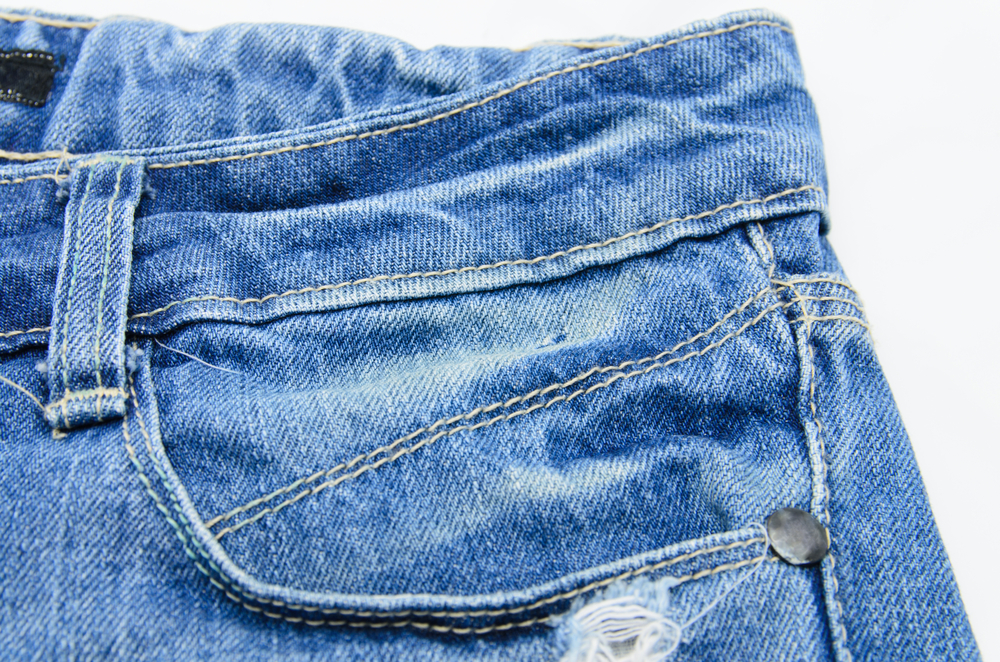
I will be putting the Nexus 6 in my front pocket -- should I worry about bending?
Of course, I ask this semi-facetiously, as I do not expect the Nexus 6 to bend at all. Heck, I keep all my smartphones in my front pocket, and have yet to experience any bending or damage. Sure, smartphones are getting larger, often testing the limits of pocket size; however, manufacturers should know a consumer's expectation about front pocket usage, and should take that into account in design.
Lately, I have been storing the large phone de jour, the Galaxy Note 4, in the front pocket of both my jeans and khakis. Guess what? It remains flawless -- no bending. So why am I asking this question? The iPhone 6 and 6 Plus of course! The "Bendgate" scandal has been criticized by many, for various reasons. I have seen people say "of course aluminum bends", and my favorite, "you should not put it in your front pocket". Really? That is just silly, as again, Apple knows that consumers keep smartphones in their front pockets, and the company has never warned against the practice.
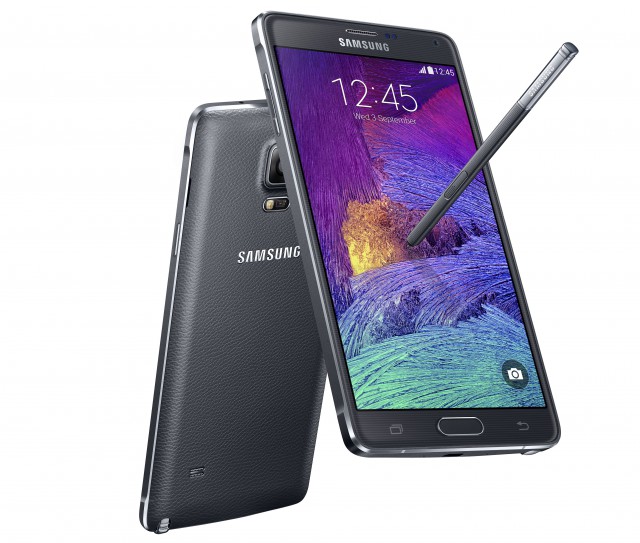
Apple launches iPhone 6, 6 Plus in China, Samsung brings Galaxy Note 4 to US, UK
Today is a big day for both Apple and Samsung, as the two are launching their latest flagships in three of the largest smartphone markets: iPhone 6 and iPhone 6 Plus officially hit China, and Galaxy Note 4 arrives in US and UK. It's a "finally" moment in both cases, as the handsets were announced more than a month ago.
For Apple, having its new iPhones officially available for sale in China, the largest smartphone market, is a huge opportunity to boost sales in what could very well be its best quarter of the year. The pair had to launch later in China this year, due to regulatory hurdles. Among other things, the local government has forced Apple to beef up the security of iOS 8 to give the new iPhones its nod of approval.
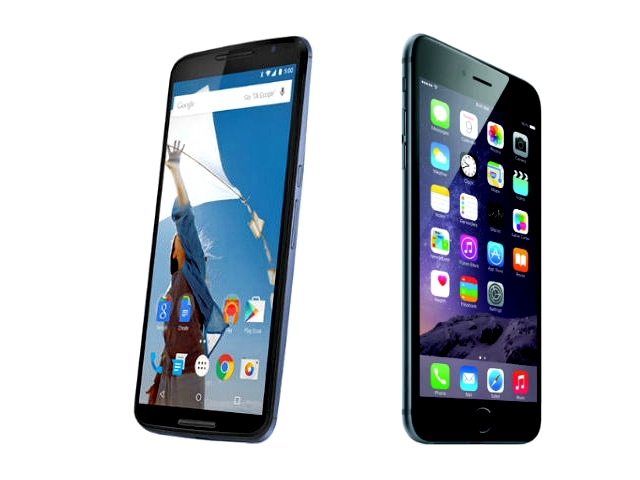
Phablet showdown: Google Nexus 6 vs Apple iPhone 6 Plus
Google (with a lot of help from Motorola) has released the much-anticipated Nexus 6, updating its beloved Nexus 5 with an all-new look and beefed-up specs. But how does the Nexus 6 compare to other smartphones on the market?
More specifically, how does it fare against Apple's iPhone 6 Plus? Let's break down the specs and take a look.
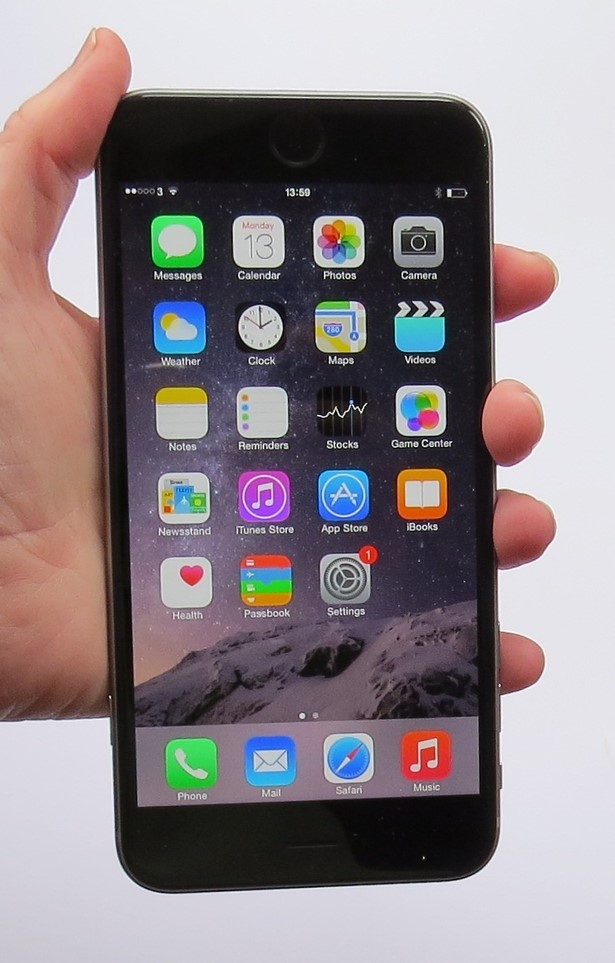
Apple iPhone 6 Plus: Beautifully made, but expensive [Review]
Here it is, then, the iPhone 6 Plus. Apple's biggest handset to date, and a competitor for all those phablets that some people swear are the perfect device for them. It's big, it's bold, it's beautifully made. Does it do enough to justify its exorbitant price? My review sample came from Three in the UK, from whom you can get the iPhone 6 Plus in any of its three colors -- gold, silver or gray -- in its 16GB variant starting from £44 a month. At that price there's a £99 up-front price for the handset.
Other operators also sell it, of course, and if you want to go SIM free you are looking at £619/$749 for the 16GB version, £699/$849 for the 64GB and £789/$949 for the 128GB. That's a lot of money, and there are plenty of other large-screened handsets that will cost you much less.
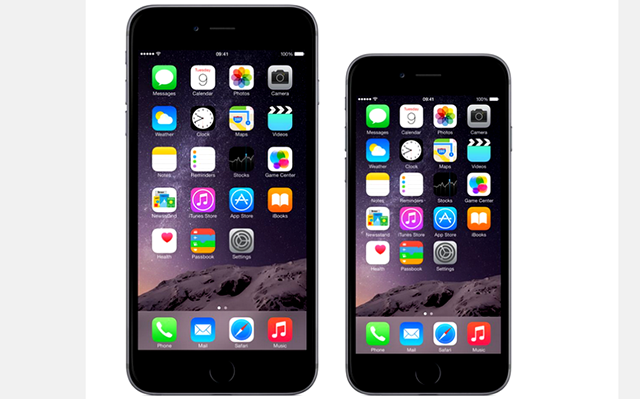
Apple's iPhone 6 and 6 Plus heading to 36 more countries by the end of the month
Apple is boasting that it is conducting its fastest ever rollout of a smartphone, with the iPhone 6 and 6 Plus set to arrive in 36 more countries during October.
That will mean the devices are available in a total of 69 countries come the end of October -- though consumers are still having a tough time getting hold of the phablet version, with the maximum three to four week wait listed at Apple's UK online store currently.

If Samsung stumbles, will Android fall down?
The world's largest smartphone manufacturer is troubled. Overnight, Samsung warned that its third-quarter operating profit could fall as much as 61.8 percent because of weakness in its largest division, mobile, from which phones account for about 60 percent of company profits. Smartphone shipments are up slightly, but the money they generate is down substantially.
For Google, the news is a mixed blessing. In April 2012, I warned that "Google has lost control of Android" -- Samsung's dominance with customized versions of the mobile operating system being major reason. Big G effectively responded by separating core apps and services from Android, spreading them out across versions, and better unifying the user experience. Still, Samsung's TouchWiz UI is the main way tens of millions of people experience Android every day. The South Korean company's problems could eventually be good for Google, but will they benefit Android or pull it down?
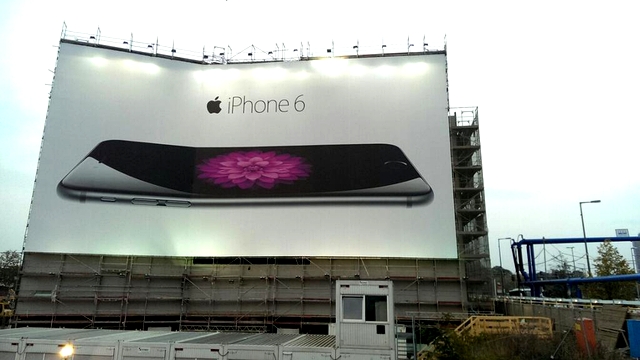
'Bendgate' continues to haunt Apple
Apple has done a ton of defensive work to put out the fires of bendgate, the latest (compulsory) scandal which arrived with the iPhone 6, but Cupertino is still feeling the heat over the issue despite its best efforts.
Once mud has been slung, it tends to stick, even though Apple has done everything from giving journalists a grand tour around its phone stress testing lab and the rigorous procedures therein, through to releasing figures that point to only nine complaints over bent iPhone 6 models, and highlighting independent testing that shows the HTC One M8 (with its aluminum body) bends just as much as Apple's smartphone.

iPhone 6 and 6 Plus available in China next month
In case you did not know, China is the largest smartphone market worldwide, bigger even than the good old US of A. For the major players in the mobile industry, it is hugely important to be leading there, as being successful in China leads to a healthy market share growth overall, but, more importantly, a healthy increase in the bottom line also.
You can imagine then just how important it is for Apple to have its new iPhones on sale in China as soon as possible. Due to regulatory approvals, it has not happened yet, but luckily for the company, that will soon change.
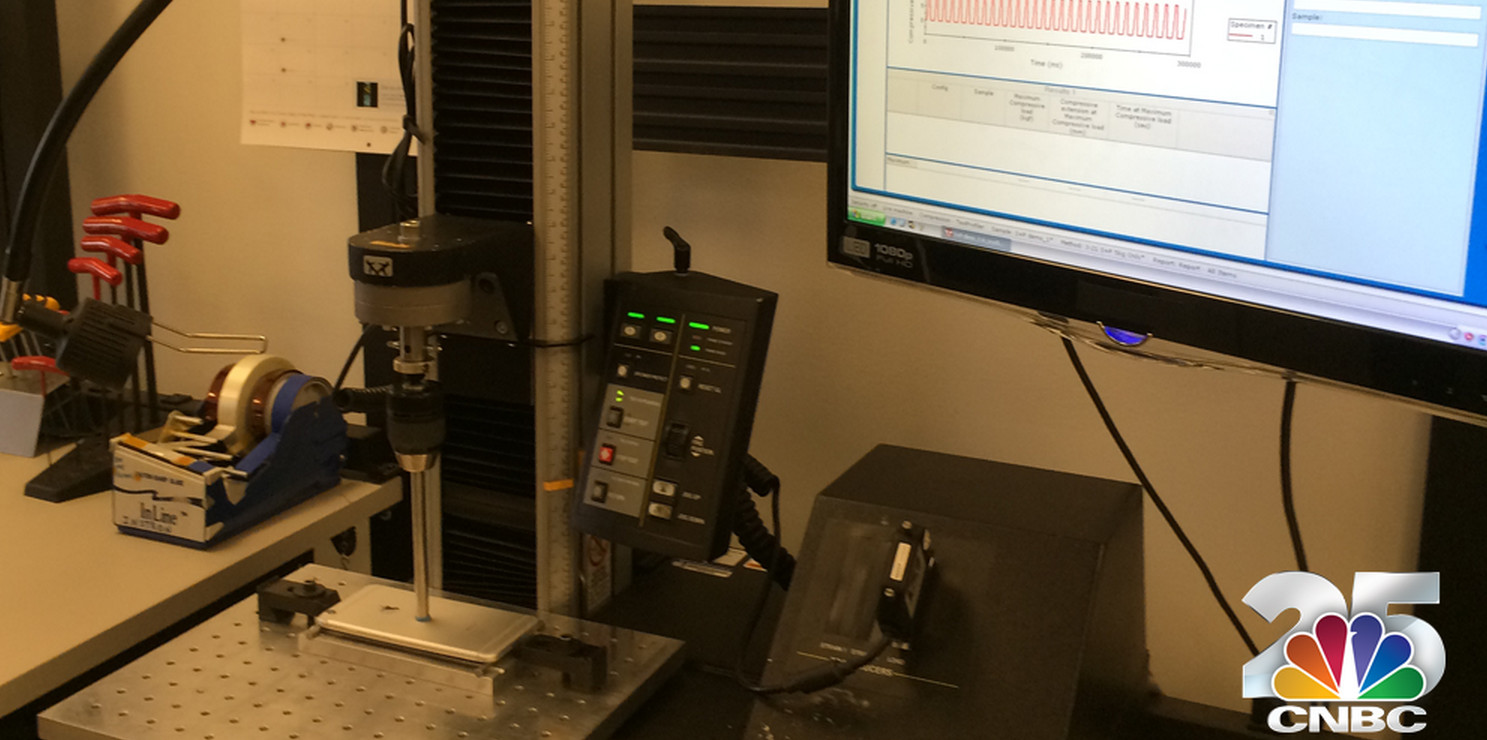
Apple tests the iPhone 6's durability using Windows XP
Apple has been under fire this week over claims that the iPhone 6 and 6 Plus bend when carried around in a tight jeans pocket, or someone making a YouTube video exerts a lot of force on the device. In an effort to counter this bad press, the tech giant has announced that just nine customers (to date) have contacted Apple with a bent iPhone (out of ten million), and it even went so far as to give CNBC an exclusive look inside its testing labs.
Anyone worried about how rigorously Apple tests its phones will have been calmed by the news that the iPhone 6 was exhaustively tested 15,000 times before being released, and the video showing that Apple uses only state-of-the-art equipment when testing for endurance and durability was reassuring too. Although CNBC then tweeted a picture from the labs revealing test results being recorded on a less-than state-of-the-art Windows XP system.

Apple takes a mulligan -- releases iOS 8.0.2 to replace the faulty 8.0.1
Apple makes amazing products and software, but every company is bound to make a mistake. Unfortunately, iOS 8.0.1 was quite the doozy. You see, the update crippled the brand new iPhone 6 and 6 Plus by taking away the ability to make phone calls and use the Touch ID fingerprint sensor. Apple was responsible however, and pulled the update very quickly. Before the update was removed, many people had already applied it and found themselves in dire straits.
Losing the ability to make phone calls is not only annoying but extremely dangerous too. Forget about the teens that just want to talk about gossip and the mall, and consider medical professionals that depend on communication or a stranded mother on the side of the road. Today, Apple rights a wrong and releases iOS 8.0.2 which undoes the damage of the previous release and introduces other bug fixes too. Kudos to the company for fixing the bug so quickly.
